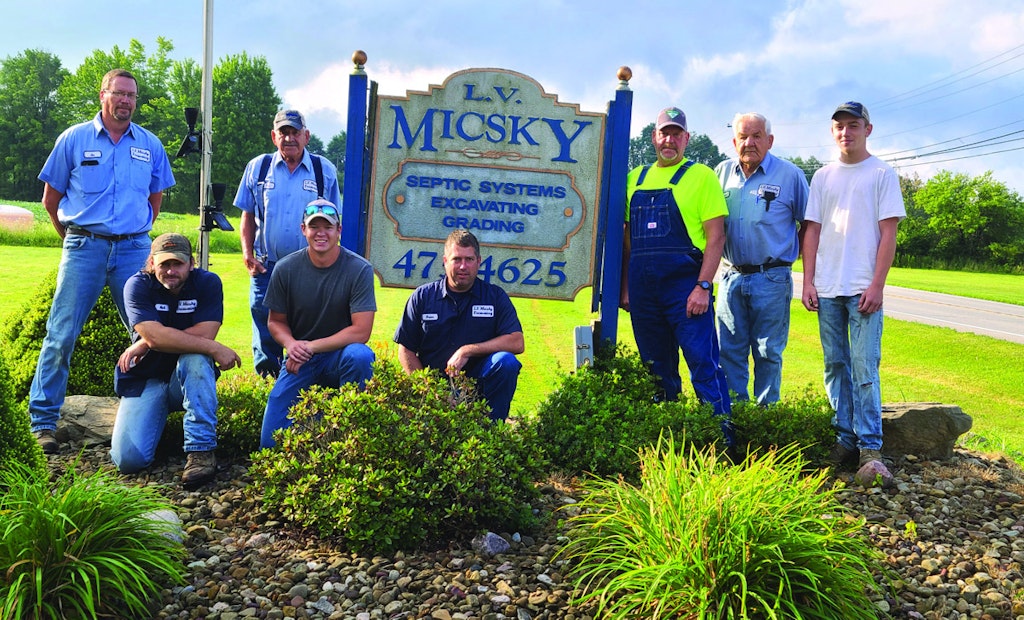
Front row, from left, Rick Miklos, Cole Micsky and Brian Smith; back row, Joe Micsky, Paul Micsky, Dan Micsky, Lawrence Micsky and Coltin Hoover.
Name and title or job description: Dan Micsky, supervisor
Business name and location: Micsky Excavating and Septic Systems, Greenville, Pennsylvania
Services we offer: Septic design, installation and servicing for everything from standard in-ground leach beds to trenches, sand...





